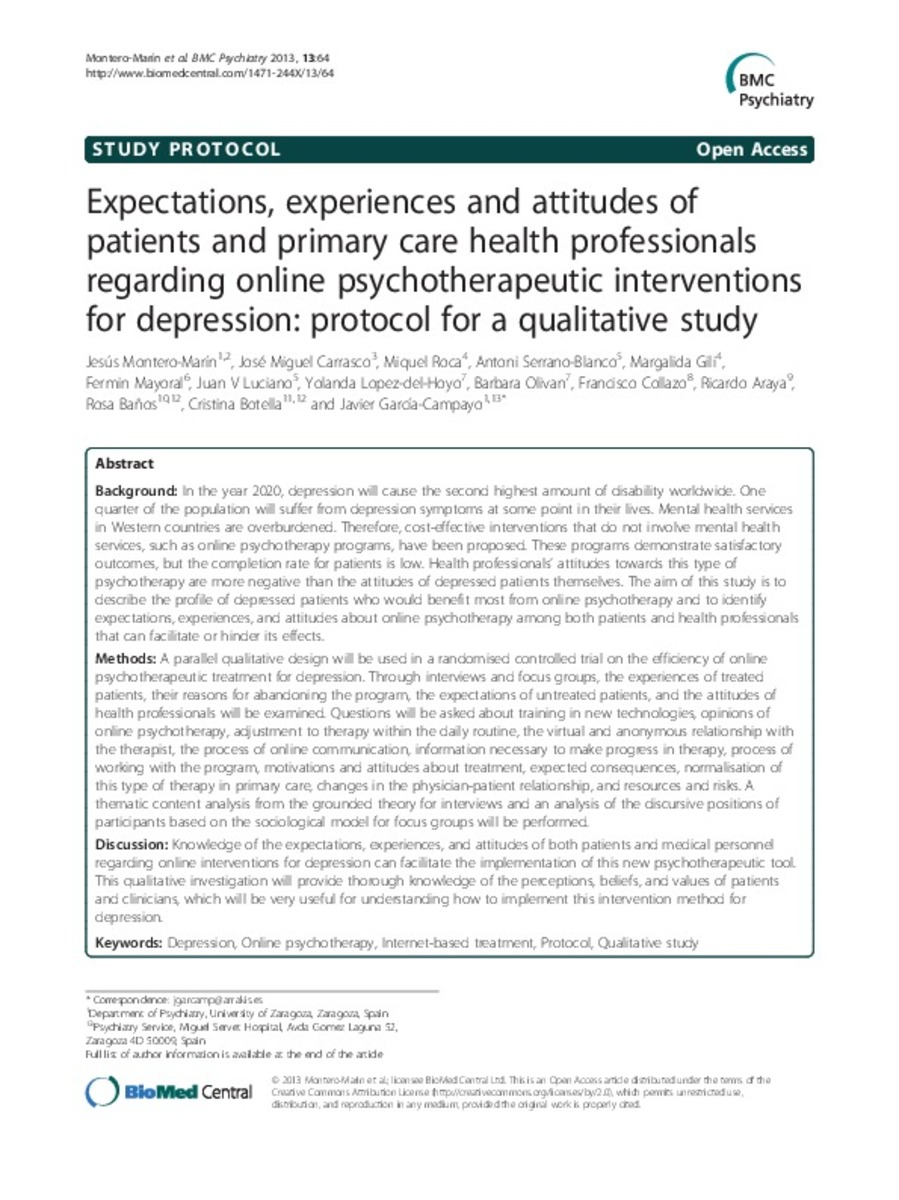Expectations, experiences and attitudes of patients and primary care health professionals regarding online psychotherapeutic interventions for depression: protocol for a qualitative study
Keywords:
Depression
Online psychotherapy
Protocol
Internet-based treatment
Qualitative study
Publisher:
BioMed Central
Note:
This is an Open Access article distributed under the terms of the Creative Commons Attribution License (http://creativecommons.org/licenses/by/2.0)
Citation:
Montero-Marín J, Carrasco JM, Roca M, et al. Expectations, experiences and attitudes of patients and primary care health professionals regarding online psychotherapeutic interventions for depression: protocol for a qualitative study. BMC Psychiatry. 2013;13:64.
Statistics and impact
0 citas en

Items in Dadun are protected by copyright, with all rights reserved, unless otherwise indicated.







